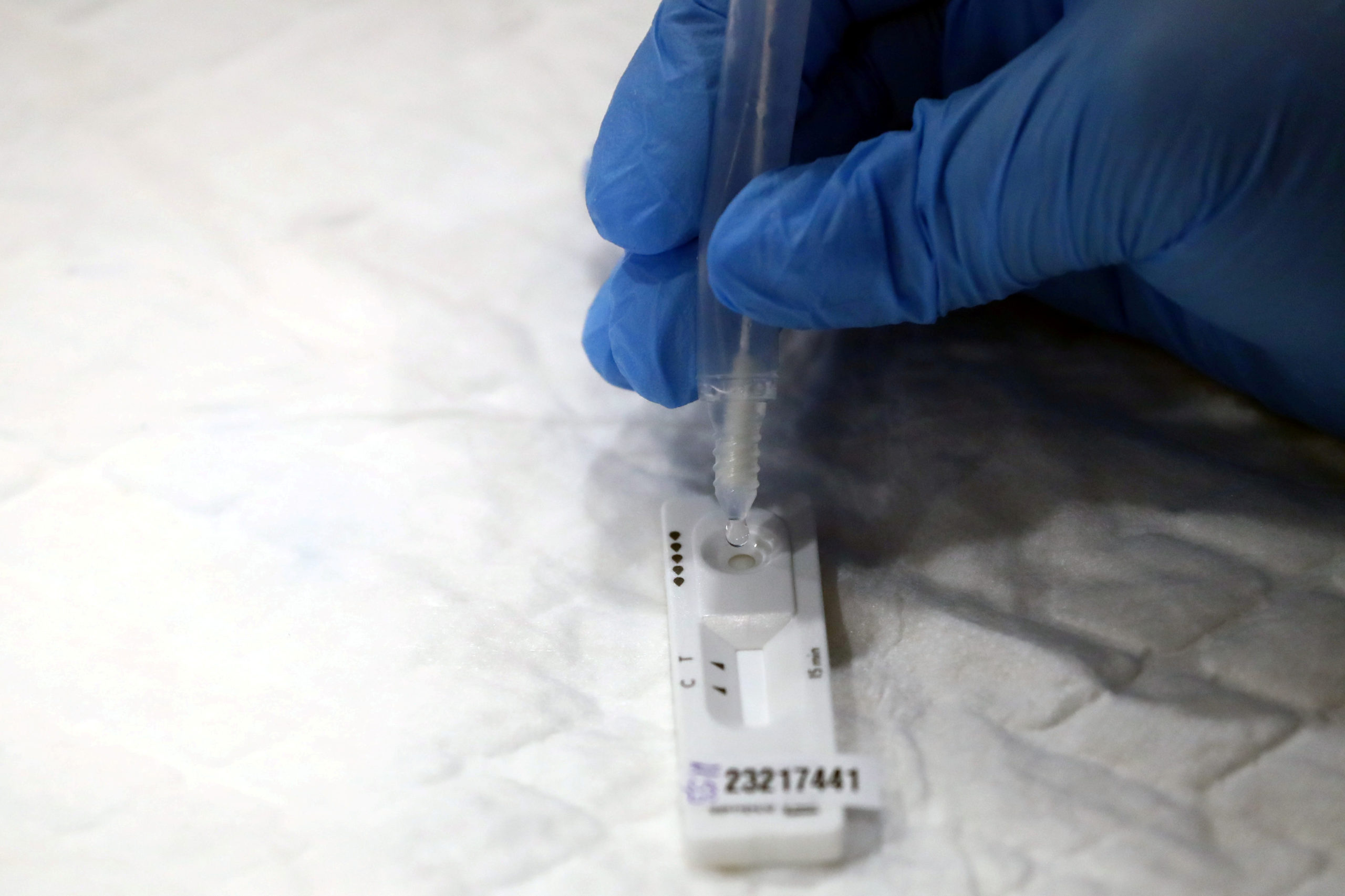Binay says COVID-19 antigen testing a ‘hit-and-miss’ strategy
MANILA, Philippines — Senator Nancy Binay on Wednesday raised concerns over the government’s plan to use rapid antigen test kits in a bid to ramp up COVID-19 testing in the country, warning it could “do more harm than good.”
The use of antigen tests is a “hit-and-miss testing strategy” and funds to be spent in purchasing kits would be better spent on more reliable testing methods, Binay said in a statement.
“With dwindling resources, the government must use its money wisely and sparingly,” she said, adding that rapid antigen testing is not reliable in detecting asymptomatic COVID-19 cases.
“The close to a billion peso price tag for a consumable quick fix testing ay sayang lang, na sana ay ipatayo na lang ng mga RT-PCR (reverse transcription polymerase chain reaction) centers and facilities,” Binay pointed out.
The government had earlier announced its plan to procure 500,000 antigen test kits that will be used to screen people in the “NCR Plus” bubble covering Metro Manila, Cavite, Bulacan, Rizal, and Laguna, which are all under the government’s tightest lockdown.
Article continues after this advertisementThe price of an antigen test kit could range between P750 and P1,500 for each unit depending on the brand, according to Binay.
Article continues after this advertisementWith 500,000 kits to eyed for procurement, the government will be spending between P375 million and P750 million for the greater Metro Manila alone, she said.
“Antigen only detects infectiousness, ‘di ang infection. It can only scan high viral loads, pero di sya reliable sa mga asymptomatic. Sa madaling sabi, it can do more harm than good,” she said.
Binay said the use of RT-PCR, considered the gold standard in COVID-19 test, remains the best option.
She then urged the Inter-Agency Task Force for the Management of Emerging Infectious Diseases and the Department of Health (DOH) to “seriously consider its testing policies.”
“For one, antigen may not be the better option as far as mass testing or individual testing is concerned dahil maraming instances na false negative ang resulta,” Binay said.
Earlier, some House lawmakers flagged a possible underreporting of confirmed COVID-19 cases since the reported infections are limited on the basis of RT-PCR results.
Currently, only those who tested positive through RT-PCR tests are considered as confirmed COVID-19 cases. Those who tested positive through antigen testing are only considered as suspected or probable cases.
The DOH, however, would now include the positive results from antigen tests in areas with a high number COVID-19 infections—such as Metro Manila and its neighboring provinces—in the official tally of cases.
/MUF
For more news about the novel coronavirus click here.
What you need to know about Coronavirus.
For more information on COVID-19, call the DOH Hotline: (02) 86517800 local 1149/1150.
The Inquirer Foundation supports our healthcare frontliners and is still accepting cash donations to be deposited at Banco de Oro (BDO) current account #007960018860 or donate through PayMaya using this link.
